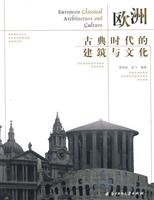 古典时代 古典时代 The Greeks and the Romans left a legacy in Europe which is evident in current language, thought, law and minds. Ancient Greece was a collection of city-states, out of which the original form of democracy developed. Athens was the most powerful and developed city, and a cradle of learning from the time of Pericles. Citizens forums debated and legislated policy of the state, and from here arose some of the most notable classical philosophers, such as Socrates, Plato, and Aristotle, the last of whom taught Alexander the Great. The king of the Greek kingdom of Macedon, Alexander's military campaigns spread Hellenistic culture and learning to the banks of the River Indus. But the Roman Republic, strengthened through victory over Carthage in the Punic Wars was rising in the region. Greek wisdom passed into Roman institutions, as Athens itself was absorbed under the banner of the Senate and People of Rome (Senatus Populusque Romanus). The Romans expanded from Arabia to Britannia. In 44 BCE as it approached its height, its leader Julius Caesar was murdered on suspicion of subverting the Republic, to become dictator. In the ensuing turmoil, Octavian usurped the reins of power and bought the Roman Senate. While proclaiming the rebirth of the Republic, he had in fact ushered in the transfer of the Roman state from a republic to an empire, the Roman Empire.
Classical antiquity (also the classical era or classical period) is a broad term for a long period of cultural history centered on the Mediterranean Sea, comprising the interlocking civilizations of Ancient Greece and Ancient Rome collectively known as the Greco-Roman world. It is the period in which Greek and Roman literature (such as Aeschylus, Ovid, Homer and others) flourished.
It is conventionally taken to begin with the earliest-recorded Greek poetry of Homer (8th–7th century BC), and continues through the rise of Christianity and the decline of the Roman Empire (5th century AD). It ends with the dissolution of classical culture at the close of Late Antiquity (AD 300-600), blending into the Early Middle Ages (AD 600-1000). Such a wide sampling of history and territory covers many disparate cultures and periods. "Classical antiquity" may refer also to an idealized vision among later people of what was, in Edgar Allan Poe's words, "the glory that was Greece, the grandeur that was Rome!"
The civilization of the ancient Greeks has been immensely influential on the language, politics, educational systems, philosophy, science, art and architecture of the modern world, fueling the Renaissance in Western Europe and again resurgent during various neo-classical revivals in the 18th and 19th centuries.
|